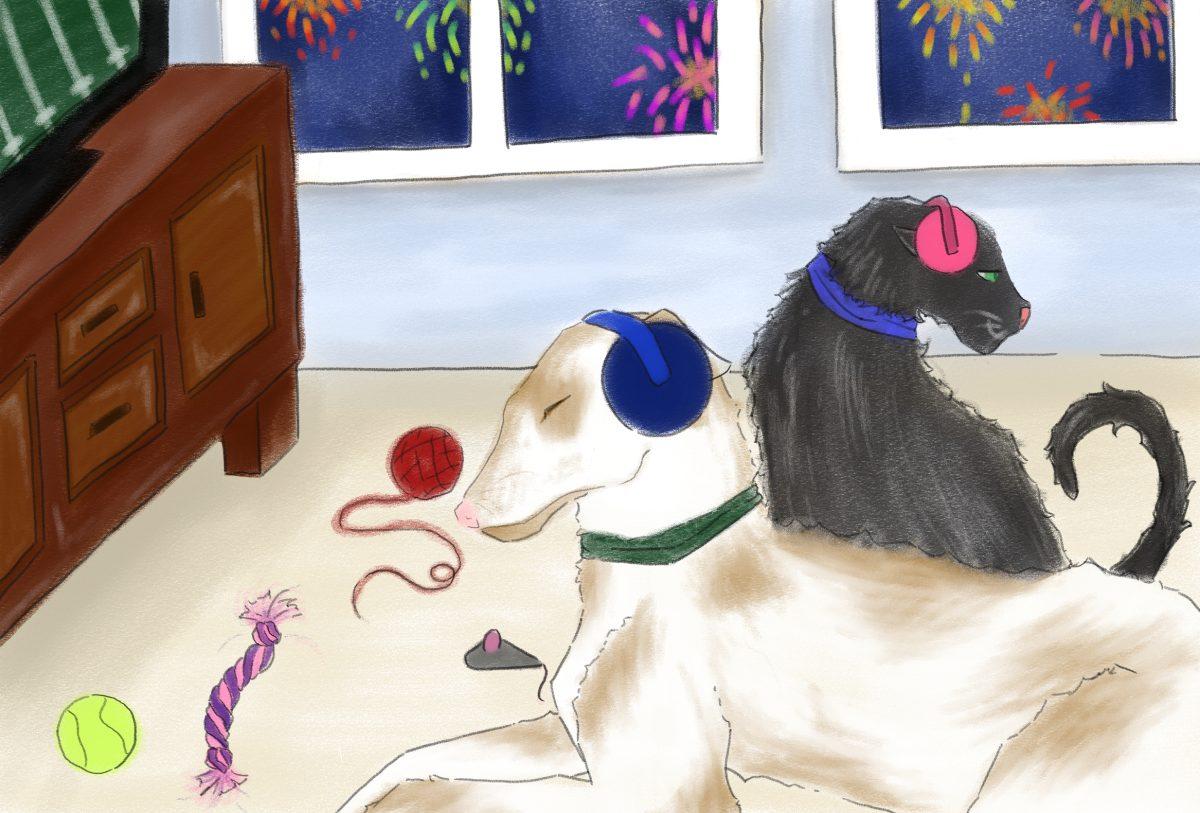Independence Day is a widely celebrated holiday in the United States as people gather on July 4 for typical activities like cookouts, boat rides or beach trips. One of the main components of a Fourth of July celebration is fireworks, whether it be a community display or store-bought items.
While most people are accustomed to the sound of fireworks, a great number of wild and domestic animals are not. In fact, dogs who already experience anxiety from loud noises and flashes of light produced from thunder and lightning are much more likely to suffer severe negative effects from fireworks.
Adopted animals with a history of abuse or neglect are also more likely to experience these anxiety issues. For example, my dog, who I adopted from a local shelter, tends to hide under furniture when hearing any loud noise including those from thunderstorms and fireworks. She used to try to jump onto the kitchen counters which, as a large German shepherd, is certainly not a safe behavior.
More negative effects from fireworks for dogs can include pacing, trembling, panting, accidental urination, pawing or climbing on people. They can even include dangerous behaviors such as escaping from home. This means pets can potentially run out in front of moving traffic and be fatally injured or get lost.
According to Animal Emergency Care, Independence Day is the busiest day of the year for shelters since some pets run away and go missing as their fight-or-flight response kicks in because of fireworks. While people are enjoying the pretty views of firework displays or setting them off themselves, animals are left to deal with these severe effects of stress.
It is vital for pet owners to be aware of how to help their pets cope with this induced stress if they notice any of these trends in their behavior.
The first piece of advice from most animal experts is to keep your pets inside to prevent an accidental escape. It is also crucial to create a safe space for them, whether they are comfortable in a crate or a small room like the bathroom where you can play music to drown out the noise of the fireworks.
There are also calming vests such as the thunder shirt that work well for many pet owners as they provide a comforting pressure to soothe your pet. I haven’t had any luck with this option, though, so I recommend calming treats that include CBD or tryptophan ingredients — they’ve been effective for my dog for years.
Another option is to try to desensitize your pet before the holiday by playing firework sounds on a low level during a positive experience like playing or receiving treats. Eventually, by slowly increasing the volume of the fireworks, it can help get them used to it.
It might also be helpful to purposefully tire out your pet by taking them on a long walk or playing a game of fetch before nighttime. That way, they will be more likely to just go to sleep once firework displays have started and less likely to run away.
If these options do not work well enough, it can be helpful to visit the veterinarian to see if there is an effective anxiety medicine for them to take during the fireworks.
Lastly, it’s important to make sure your pets are microchipped and/or wearing a collar with your contact information in case they run away. There are a multitude of ways for pets to cope with fireworks on the Fourth of July, so pet owners should take proactive action when necessary.














